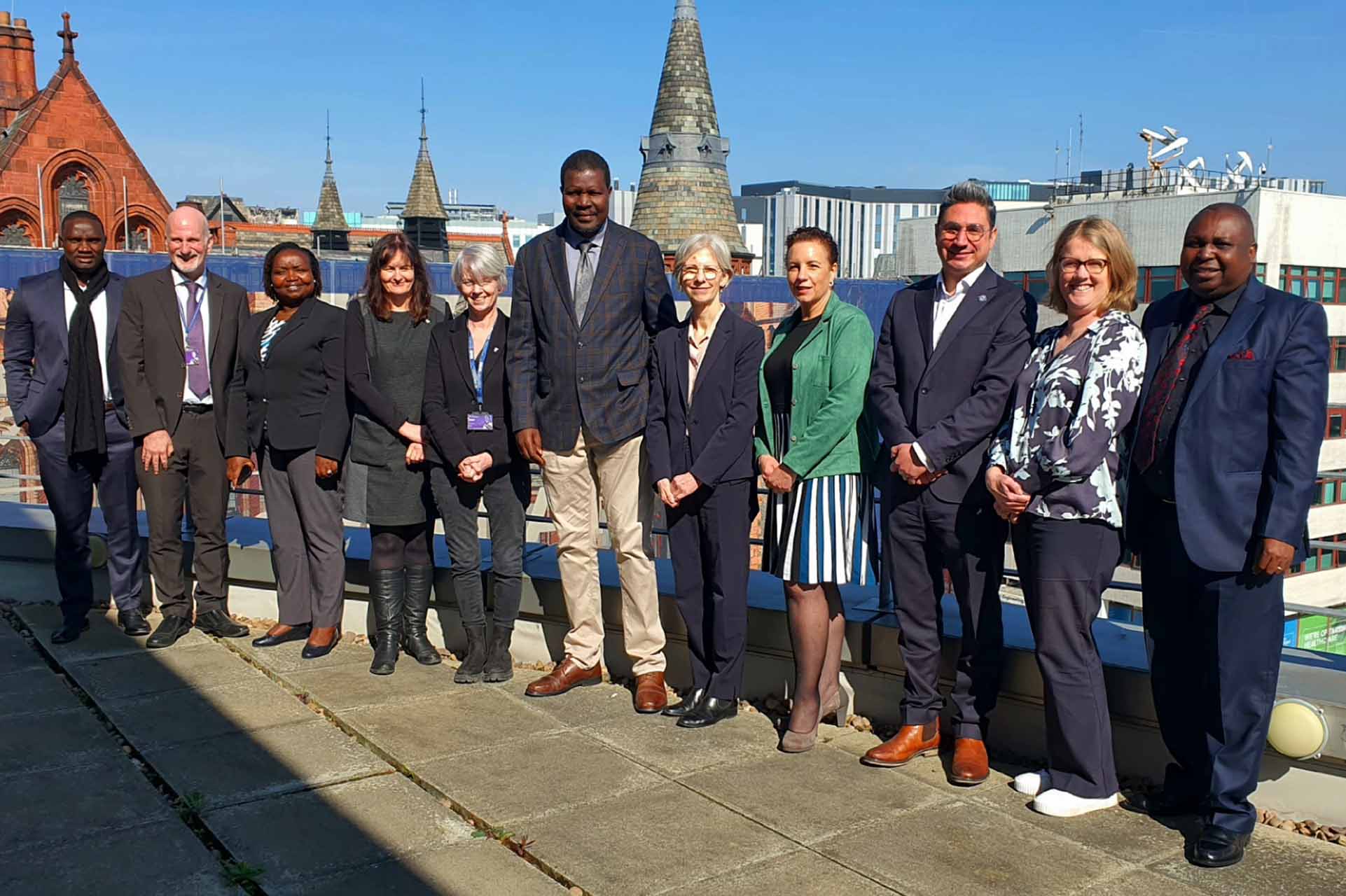
Following a successful initial visit in 2024, a high-level delegation from the Kenyan Medical Research Institute (KEMRI) recently visited the University of Liverpool.
The meeting was an opportunity for representatives of both institutes to discuss advancements in research and, further cemented our commitments to improving health outcomes.
The KEMRI delegation, which included the Director General, Chair of the Board and the Head of Legal Affairs, was accompanied by a senior advisor from the Executive Office of the President of Kenya, William Ruto. This visit follows an initial trip to Kenya in January 2024 by the University of Liverpool’s senior leadership team, where the scope for collaboration was identified with the KEMRI Board and the University’s Graduate School.
The highlight of the summit was a showcase of University of Liverpool research excellence, with presentations from key academic leads such as Professors Dan Pope, Sofat, Michael, O’Flaherty, and Atkinson. Discussions explored a broad selection of areas for collaboration, focusing particularly on research partnerships and funding opportunities. Among the key outcomes from the visit were agreements to align efforts between KEMRI, the University of Liverpool, and the Kenyan government on crucial initiatives such as clean energy policies, nutritional regulation, tracking prescribing behaviour, and air quality monitoring.
One of the most promising agreements was the commitment to collaboration on clean energy, particularly the joint effort to roll-out clean cooking solutions in Kenya led by the Office of the President. An example of this was a formal commitment to implement low cost air pollution monitors - developed by University of Liverpool’s Jonny Higham - to KEMRI Air Pollution Centre of Excellence for calibration, certification and implementation across Kenya and ultimately sub-Saharan Africa. This project builds on the University’s successful NIHR CLEAN-Air(Africa) Global Health Research partnership initiative, which address reduce household air pollution, one of the leading causes of premature deaths in Africa. The Kenyan government’s Office of the President is also keen to align national clean energy policies with the research being carried out by KEMRI and the University of Liverpool’s Air Pollution Centre of Excellence.
Another exciting development is the planned collaboration between KEMRI and Professor Sofat’s research team, which will include the establishment of a Kenyan research cohort, as well as the possibility of joint funding applications for brain infection research with the Wellcome Trust in partnership with Professor Michael and his team.
Professor Dan Pope, Director of the NIHR Global Health Research Unit on CLEAN-Air (Africa) at the University of Liverpool, expressed his enthusiasm about the visit: “the University of Liverpool is seen as a key research partner for KEMRI and it is fantastic to receive such high level support from the leadership team and colleagues in cementing the collaboration. In a currently challenging funding environment for global public health, partnerships between centres of excellence in Kenya and the UK will be critical to remain competitive. In collaboration with KEMRI, our research group is optimistic about the potential to consolidate and expand our energy, air pollution and health research in Kenya and wider sub-Saharan Africa”.
The visit concluded with a dinner hosted by Vice-Chancellor Tim Jones, where attendees continued to discuss the ongoing commitment to raising the profile of these vital initiatives, paving the way for continued partnerships in the future.